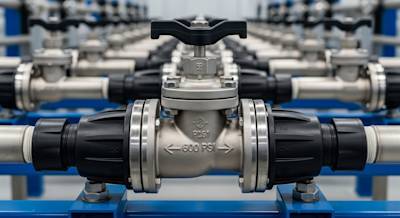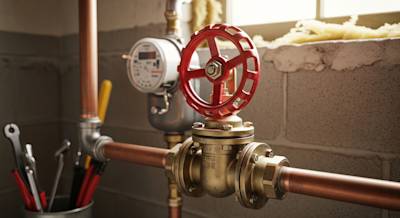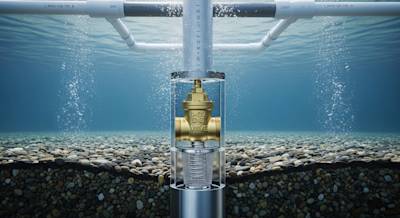In every locales around the world, septic tank pumping remains an imperative topic for homeowners and property owners. For a seamless living and working experience, the smooth functioning of a septic tank is a must. Without regular tank pumping, the system can potentially malfunction and cause significant issues. This comprehensive guide dives deep into everything you need to know about septic tank pumping.
Understanding Septic Tank Systems
To understand the importance of septic tank pumping, it is fundamental to understand how a septic system operates. Primarily, a septic tank system serves as a small-scale sewage treatment facility, mostly found in areas not connected to main sewage pipes.
A typical septic system comprises:
- A septic tank
- A distribution box
- A drain field
All household waste is channeled via pipelines into the septic tank. The waste is then naturally broken down via bacterial action and is separated into layers. The lighter waste floats atop, forming the scum layer, while heavier particles settle down and create the sludge layer. The middle layer is somewhat clear water that flows out to the drain field.
The Importance of Septic Tank Pumping
The buildup of solid waste at the bottom of the tank leads to the necessity of septic tank pumping. With time, the accumulated waste increases and, if not removed, can leak into the drainage field. It can damage the soil and, subsequently, the environment. Therefore, regular septic tank pumping ensures:
- Longer lifespan of the septic tank
- Preservation of the drain field
- Healthier environment
So, if you notice any signs of septic tank malfunction like slow drains, unpleasant odors, or soggy yards, it may be time to consider pumping your septic tank.
The Process of Septic Tank Pumping
Septic tank pumping involves removing the sludge, scum, and effluent from the tank to ensure its functionality. Here's how the standard process goes:
Locating the septic tank: The service providers use a metal detector or probing rods to locate your septic tank.
Digging and Inspection: Once located, the septic tank has to be dug up for inspection. The layers of waste are evaluated to assess the need for pumpage.
Pumpage: If necessary, a vacuum hose is inserted into the septic tank to suck out the waste.
Disposal: The waste sucked out then is trucked to a disposal site or treatment facility.
Length of Septic Tank Pumping
The length of a septic tank pumping process depends on multiple factors including the size of your tank, the amount of waste to be pumped out, and the accessibility of your tank. Generally, it can take anywhere from one hour to several hours to be completed.
Frequency of Septic Tank Pumping
The frequency of septic tank pumping largely relies on several factors including:
- Size of your septic tank
- The number of people in your household
- Amount of wastewater generated
- Quantity of solids in the wastewater
Typically, regular pumping every 3-5 years helps maintain a well-functioning septic tank.
Hiring a Septic Tank Pumping Company
Entrusting professionals with your septic tank pumping process is a prudent decision. They are skilled, experienced, and equipped with the necessary tools for the job.
When choosing a septic tank pumping professional, consider the following:
- Experience and reputation
- Services offered
- Compliance with safety rules and regulations
- Responsiveness and reliability

Frequently Asked Questions about Septic Tank Pumping
How frequently should I pump my septic tank?
The frequency of septic tank pumping largely depends on the tank size, the amount of wastewater generated, and the volume of solids in the wastewater. Typically, septic tanks should be pumped every 3-5 years, but tanks with mechanical components might need pumping annually. If you're unsure of when last your tank was pumped, it's best to consult a professional who can advise you on the appropriate timeline.
What signs indicate that my septic tank needs to be pumped?
Some common signs that your septic tank needs to be pumped include slow drains, foul odors coming from drains or in your yard, backups, or standing water or lush green grass over the drain field. If you notice any of these signs, it’s time to pump your septic tank.
How long does it take to pump a septic tank?
The length of time it takes to pump a septic tank can vary based on the size of the tank and the amount of waste, but typically, a standard septic tank pumping and cleaning takes around 2-4 hours.
Can I pump my septic tank myself?
While it's technically possible to pump a septic tank yourself, it's strongly advised to hire a professional to do the job due to the potential health hazards associated with septic waste. Septic tank professionals have both the knowledge and the equipment to safely and successfully pump your septic tank.
What is the cost of septic tank pumping?
The cost to pump a septic tank can vary, but on average, you can expect to pay between $200-500. Factors that can affect the cost include the size of the tank, how full the tank is, and whether or not there are any issues that need addressing during the pumping process.
Does heavy rain affect septic tank pumping?
Yes, heavy rain can potentially impact septic tank pumping. When the ground is saturated from heavy rains, it can cause the water to pool on the drain field, making it difficult for water to septic solutions to soak into the ground—a process known as percolation.
Can I use my water while my septic tank is being pumped?
It's best to avoid using water while your septic tank is being pumped. This is because water can interfere with the pumping process and potentially even cause a backup.
Does pumping a septic tank remove all the waste?
No, pumping a septic tank doesn't necessarily remove all the waste. Some amount of solid waste and sludge may remain after pumping. This waste can actually aid in the reactivation of the system by helping to reignite the digestion process for waste in the tank.

Pros of Septic Tank Pumping
Promotes Health and Hygiene
A key benefit of regular septic tank pumping is that it serves to maintain impeccable hygiene and health standards.
Prevents Diseases
Stagnant wastewater in septic tanks, if allowed to overflow, can become a breeding ground for harmful pathogens, that may lead to potential diseases. Regular pumping helps in avoiding any such health complications.
Foul Odor Elimination
An overflowing septic tank can emanate foul odors that make the living environment unbreathable and unpleasant. Pumping them regularly helps eliminate this nasty odor.
Enhances the lifespan of the Septic System
Reduces Wear and Tear
Regular pumping reduces the strain on the system due to the buildup of solid waste in septic tanks. This extends the operational efficiency and longevity of the entire septic system.
Prevents Potential Damage
The buildup of waste over an extended period can lead to the solidification of sludge, which may cause damage to the septic tank. Regular tank pumping can avoid these costly damages.
Breaks Down Waste Effectively
With regular pumping, the capability to decompose and manage waste effectively increases, ensuring the smooth functioning of your septic system.
Enhances Tank Performance
A cleaned and pumped tank performs better in treating and managing the waste effectively.
Cons of Septic Tank Pumping
Expense
Probably the most significant disadvantage of septic tank pumping is the cost associated with the procedure.
Recurring Expense
Septic tank pumping is not a one-time expense. For the system to function optimally, routine pumping is required, and this leads to recurring costs.
Unexpected Repair Costs
In some cases, pumping may uncover hidden issues within the septic system, leading to additional repair costs that can add to the expense.
Requires Professional Assistance
Septic tank pumping is not a DIY job; it requires professional assistance. This could be seen as a disadvantage due to the inconvenience and additional costs of hiring a professional.
Time-Consuming
Scheduling Delay
Finding an appropriate time that suits both the homeowners and pumping service can be challenging.
Onsite Procedure
The process of pumping out a septic tank is time-consuming. It might disrupt day-to-day activities, especially in commercial spaces where any delay or hindrance can cause business loss.
Environmental Considerations
The waste pumped out from septic tanks is often disposed of in landfills or treated in sewage treatment plants, which can become an environmental issue if not managed properly.
Potential for Groundwater Contamination
Improperly pumped or leaking septic tanks can lead to seepage of waste material into the groundwater, posing a significant environmental threat.
High Energy Usage
The process of pumping and the subsequent treatment of waste is energy-intensive, contributing to a carbon footprint.

Myths / Misconceptions about Septic Tank Pumping
Septic tank pumping is one of those necessities that often gets overlooked when it comes to home maintenance. Many homeowners are unsure about the hows, whens, and whys surrounding the process, leading to a multitude of myths and misconceptions. From frequency to potential dangers, let's debunk some of the most common false beliefs about septic tank pumping.
Myth 1: Septic Tanks Don't Need To Be Pumped Regularly
While septic tanks are indeed designed to partially break down waste, they still need regular pumping to remove the solid remnants known as ‘sludge’.
Fact
If not regularly pumped, this sludge will continue to build up, decreasing the functioning capacity of your system and eventually backing up into your drains or leaching into your yard. The frequency varies from home to home based on usage, amount of wastewater generated, and size of the tank, but it's generally suggested that septic tanks be pumped every 3-5 years.
Myth 2: It's OK to Delay Pumping Until There Are Problems
This belief could not only harm your septic system but could also lead to expensive repairs.
Fact
Waiting until signs of a problem appear (like foul smell, slow drains, or water pooling in your yard) usually means the damage has already occurred. Regular maintenance including pumping is the key to prolonging the life of your septic system and avoiding pricey repairs.
Myth 3: If You're Not Using It Much, It Doesn't Need Pumping
The idea that infrequent usage means less pumping is yet another common misconception.
Fact
While your septic tank likely won't fill as quickly if you're not home often, it still needs regular maintenance. Over time, the solid waste can build up and harden, creating an even bigger problem to deal with.
Myth 4: Septic Additives Eliminate the Need for Pumping
Some believe that using additives in a septic system negates the need for regular pumping.
Fact
While certain additives can help break down waste, they cannot eliminate all solid waste. Regular pumping is still necessary to remove residual solids and prevent system failure.
Myth 5: All Liquids Break Down Easily in Septic Tanks.
It's a familiar thought that all liquids are safe for septic systems.
Fact
Not all liquids are good for your system. Some, like oils, fats, and chemicals, can lead to blockages and damage. It's best to limit the use of harsh cleaning agents and ensure any grease or oil is properly disposed of, not rinsed down drains.
Myth 6: A Well-Maintained Septic System Will Last Forever
Whilst optimists might want to believe this, it’s, unfortunately, false.
Fact
Even the best-maintained septic systems have a finite lifespan. A good system that is well cared for can last for several decades, but it will eventually need to be replaced.
Myth 7: If Your Septic System Fails, You Must Replace It
Some people think that if their septic system fails, it must be replaced.
Fact
Not all septic system failures require total system replacement. Some issues can be fixed by repairing or replacing parts of the system. Consulting with a professional can help determine the best course of action.
In conclusion, understanding the realities versus the myths surrounding septic tank pumping can undoubtedly help homeowners to better care for their septic systems. Implementing regular pumping as a part of overall maintenance can ensure a healthy, longer-lasting septic system and ultimately spare you unnecessary costs and headaches.
Summary
Septic tank pumping is not a DIY endeavor. It's a complex process that involves a licensed professional. These pros have the right equipment and training to handle these tasks safely and effectively. Remember that regular pumping is the best way to maintain your septic system's longevity, performance, and overall health. It's a crucial task that homeowners shouldn't put off. The consequences of ignoring it can be expensive and a real headache.
Are you wondering why there's a sudden emergence of bad odor or gurgling sounds in your plumbing system? This could indicate that your septic system might need attention. Septic tank pumping could be the solution. It's about cleaning out all the waste accumulated, unclogging the system, and allowing it to function properly again. So, if you suspect issues with your septic system, it's time to call a septic tank pumping professional to sort things out.
Finally, if you're conscious about environmental health, consider septic tank pumping as a significant contributor. By ensuring your septic system is working correctly, you're also preventing pollution and protecting your local ecosystem. By pumping your tank every 3-5 years, you are not just making sure you avoid any unpleasant septic surprises, but you are also playing a role in environmental conservation and protection. It's a win-win, I would say!
About KYPD Plumbing
KYPD Plumbing is your trusted local Lexington, KY service for all things plumbing-related. Living here for generations, we know the community, understand its plumbing needs and commit ourselves to address those with top-notch services. From dripping faucets to clogged sewers, we've got you covered with our team of dedicated and licensed professionals, always equipped and ready to serve you at your convenience, with the most cost-effective solutions. We at KYPD Plumbing, take pride in the personal commitment we have to our customers, promising quality, responsiveness, and reliability, making us your go-to neighborhood plumber. Rest assured, in every job we do, we do our utmost to ensure your peace of mind along with the perfect flow of your water!
Tags: septic tank, pumping, maintenance,














